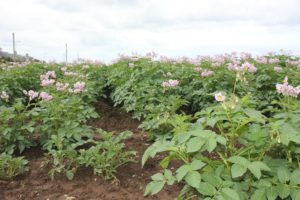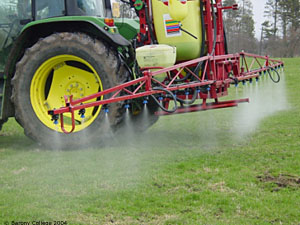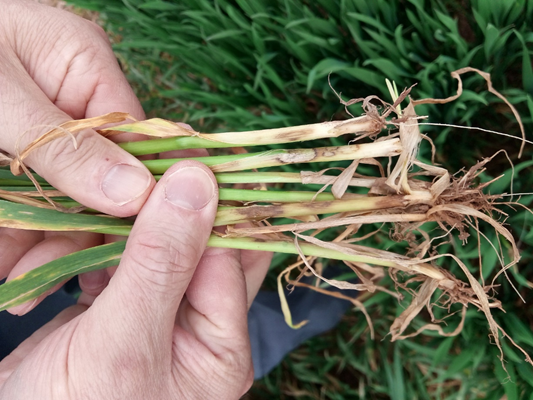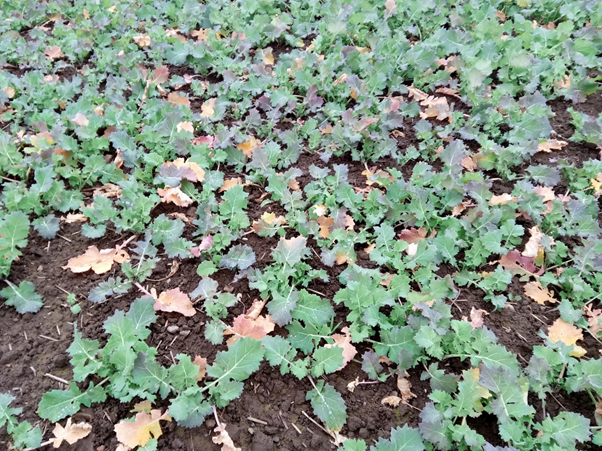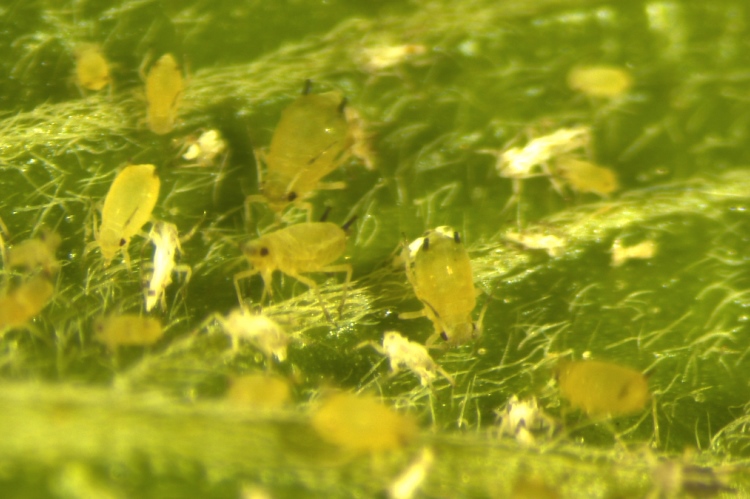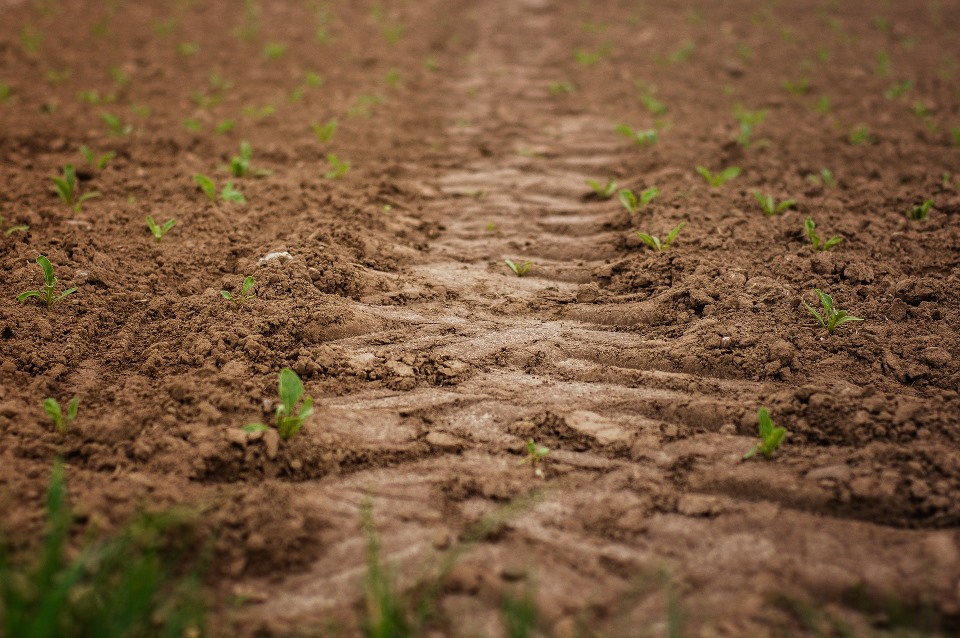Crop Health Updates - October 2019
General Comments
The continuing wet weather and difficult harvest/sowing conditions are dominating comments from our consultants and their clients. Winter barley acreage will be down as growers have struggled to get crops sown. Winter wheat is next to go in and the delayed sowing increases the threat from wheat bulb fly (where 1 in 5 of fields sampled after potatoes exceeded damage thresholds) and slugs. Slugs are having a great time at the moment judging by the damage seen in oilseed rape and some winter barley crops.
The first fungicide sprays of the season should be due on winter oilseed rape in the next few weeks to prevent light leaf spot becoming an issue. Take into account variety resistance ratings though as varieties with high resistance ratings may only need a spring treatment. Base decisions on past history of the disease on farm.
The estimated Scottish Cereals and Oilseed Rape Harvest figures have been released by the Scottish Government which are based on crops that had been harvested by the end of September. Final estimates, based on a survey of cereal and oilseed rape farms, will be published in December and may paint a more accurate picture of how the season has been.
Major risks line up against the potato crop
The potato sector is amongst those hardest hit by pending pesticide withdrawals and this will make husbandry of the crop increasingly difficult. Of particular concern is the withdrawal of diquat in February 2020. This is currently used to ‘burn off’ and desiccate potatoes and it will have a significant impact, especially in the Scottish seed crop and particularly with softer-skinned European varieties that are being grown in greater quantities in Scotland. Read more here.
Pesticide losses mean new approaches to crop protection
Concerns over pesticide losses comes out repeatedly as one of the industry’s main issues when it comes to managing plant health issues going forward. Vegetable and soft fruit production are particularly at risk, because of the limited number of existing actives and the high risks posed by pests and diseases. Read more here.
Stem base diseases hit yields in 2019
The SRUC crop clinic has been kept busy this season with stem base disease cases in wheat and barley. Some of these have come in from fields with high levels of lodging and others from sites where yield have been unexpectedly low. Common eyespot, fusarium and sharp eyespot levels have all been high, as have levels of take-all. Read more here.
Pest pressures mount in oilseed rape
Wet weather has encouraged slugs and grazing damage can be seen in many oilseed rape crops. Treatment may not be needed if crops have reached 4 true leaves as they will be able to grow away from any further damage by that stage. Due to the risk of metaldehyde ending up in water, use of metaldehyde slug pellets should be avoided unless strictly necessary, especially bearing in mind that metaldehyde pellets should not be allowed to fall within a minimum of 10 metres of any field boundary or watercourse. Ferric phosphate slug pellets are a viable alternative. Read more here.
Pests - Oct 2019
The change to cooler and wetter weather will knock back the flight of aphids into crops, although any warmer sunny days will see them flying about again. The difficult harvest and sowing this season may have led some growers to ease off on managing the green-bridge from the last crop to the next. This could mean that aphids on stubble and volunteers might be able to survive and move onto the germinating winter cereal, and with it bring a risk of barley yellow dwarf virus (BYDV). Read more here.
Weeds - Oct 2019
In fields that are dry enough to travel, it is best to apply a pre-emergence herbicide to winter cereals before weeds germinate. Where conditions are too wet and it is necessary to wait, weeds still may not have germinated due to cooler soil conditions, so once conditions improve it may still be possible to get the pre-emergence treatment on before weeds emerge. Read more here.
Sign up to the FAS newsletter
Receive updates on news, events and publications from Scotland’s Farm Advisory Service

